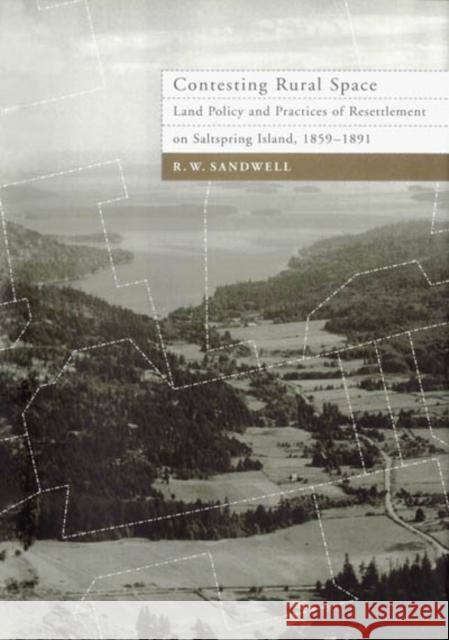Contesting Rural Space: Land Policy and Practices of Resettlement on Saltspring Island, 1859-1891 » książka
Contesting Rural Space: Land Policy and Practices of Resettlement on Saltspring Island, 1859-1891
ISBN-13: 9780773528598 / Angielski / Twarda / 2005 / 384 str.
Contesting Rural Space: Land Policy and Practices of Resettlement on Saltspring Island, 1859-1891
ISBN-13: 9780773528598 / Angielski / Twarda / 2005 / 384 str.
(netto: 466,45 VAT: 5%)
Najniższa cena z 30 dni: 483,79
ok. 30 dni roboczych.
Darmowa dostawa!
An intriguing mix of African-American, First Nation, Hawaiian, and European, the early residents of Saltspring Island were neither successful farmers nor full-time waged workers, neither squatters nor bona-fide landowners. Contesting Rural Space explores how these early settlers created and sustained a distinctive society, culture, and economy. In the late nineteenth century, residents claiming land on Saltspring Island walked a careful line between following mandatory homestead policies and manipulating these policies for their own purposes. The residents favoured security over risk and modest sufficiency over accumulation of wealth. Government land policies, however, were based on an idea of rural settlement as commercially successful family farms run by sober and respectable men. Settlers on Saltspring Island, deterred by the poor quality of farmland but encouraged by the variety of part-time, off-farm remunerative occupations, the temperate climate, First Nations cultural and economic practices, and the natural abundance of the Gulf Island environment, made their own choices about the appropriate uses of rural lands. R.W. Sandwell shows how the emerging culture differed from both urban society and ideals of rural society.











